Hearts of Oak Podcast
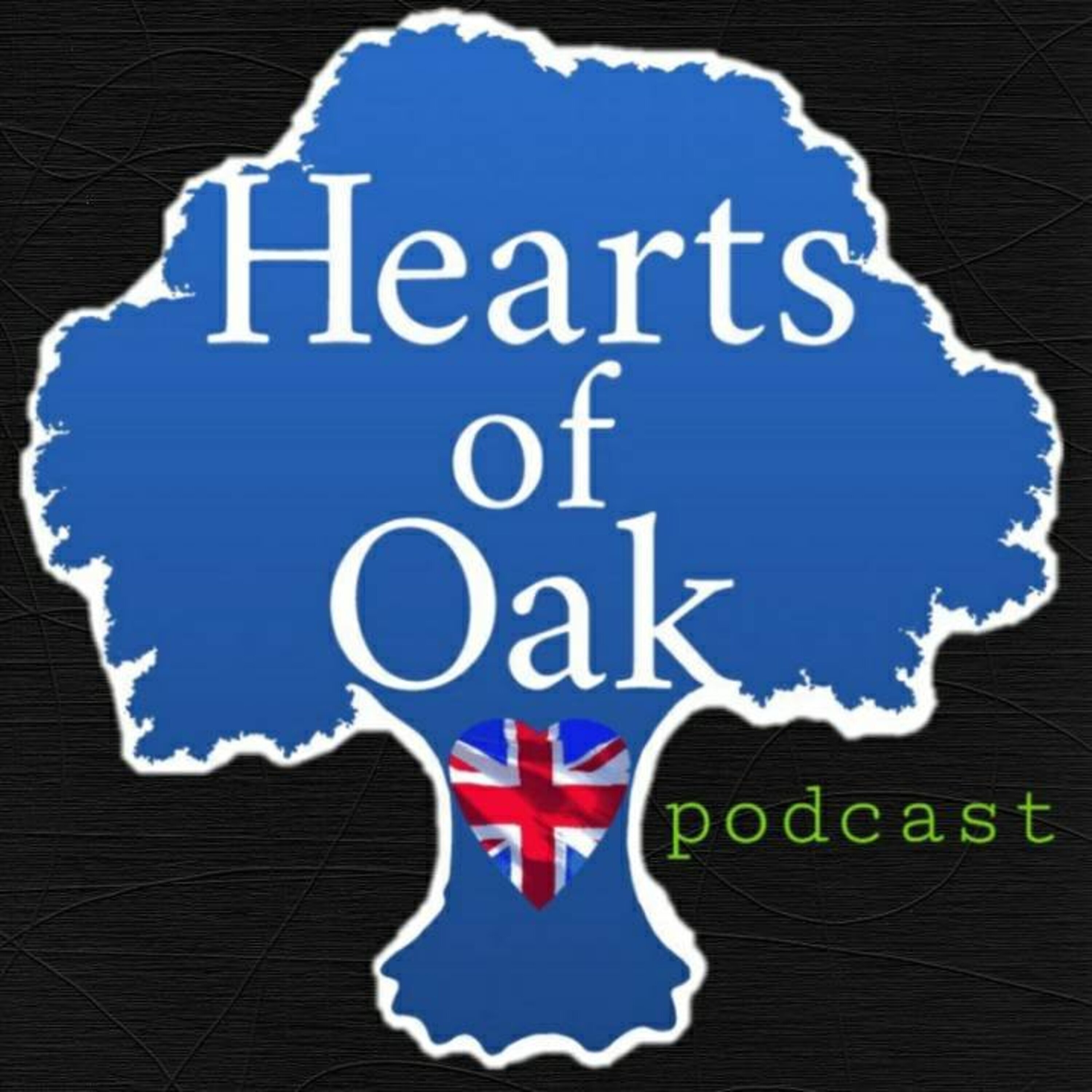
GUEST INTERVIEWS - Every Monday and Thursday - WEEKLY NEWS REVIEW - Every Weekend - Hearts of Oak is a Free Speech Alliance that bridges the transatlantic and cultural gap between the UK and the USA. Despite the this gap, values such as common sense, conviction and courage can transcend borders. For all our social media , video , livestream platforms and more https://heartsofoak.org/connect/
Episodes
Episodes
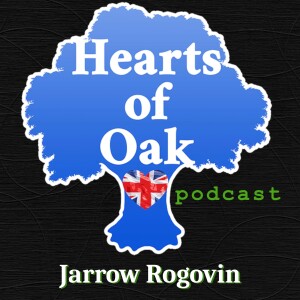


Thursday Feb 27, 2025
Jarrow Rogovin: Can an Endless War be Ended? A Palestinian Solution
Thursday Feb 27, 2025
Thursday Feb 27, 2025
In this compelling podcast interview, Jarrow Rogovin, a passionate entrepreneur and philanthropist, delves into the complex dynamics of the U.S.-Israel relationship and the ongoing conflicts in the Middle East. Reflecting on recent tragedies like the California wildfires, Rogovin transitions into a sobering analysis of his paper, "Can an Endless War Be Ended?" He critiques the roles of regional players like Egypt, Jordan, and Iran, arguing that Palestinian leadership has failed to build a cohesive national identity, instead fueling extremism and opposition to Israel. Rogovin controversially asserts that a Palestinian state is unfeasible post-October 7 violence, suggesting integration into neighboring countries as a solution. He critiques international aid for perpetuating instability and calls for accountability to break the cycle of violence. Highlighting rising anti-Semitism and threats to democracy, Rogovin urges vigilance and a cooperative path toward peace rooted in mutual respect and better governance.
Connect with Jarrow: No Socials
Connect with Hearts of Oak. . .𝕏 x.com/HeartsofOakUKWEBSITE heartsofoak.org/PODCASTS heartsofoak.podbean.com/SOCIAL MEDIA heartsofoak.org/connect/SHOP heartsofoak.org/shop/
*Special thanks to Bosch Fawstin for recording our intro/outro on this podcast.
Check out his art theboschfawstinstore.blogspot.com and follow him on 𝕏 x.com/TheBoschFawstin
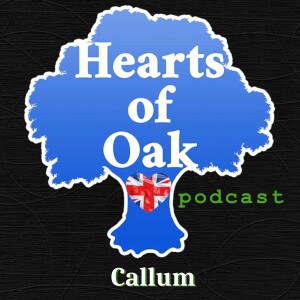


Monday Feb 24, 2025
Callum: Tourism In El Salvador - The Bitcoin Dictatorship
Monday Feb 24, 2025
Monday Feb 24, 2025
In this episode of Hearts of Oak, Callum returns for his fourth appearance to discuss his recent trip to El Salvador. The conversation starts with lighthearted anecdotes before diving into the country's radical transformation under President Nayib Bukele. Callum explores El Salvador’s controversial adoption of Bitcoin, the crackdown on gang violence, and the delicate balance between security and civil liberties. Drawing comparisons to global authoritarian trends, he offers insight into the trade-offs societies make between freedom and stability. A must-listen for those interested in governance, economics, and human nature.
Recorded 24.02.25
Connect with Callum...𝕏 x.com/AkkadSecretaryYOUTUBE youtube.com/@Britannica1/featuredSUBSTAR subscribestar.com/callum
Connect with Hearts of Oak. . .𝕏 x.com/HeartsofOakUKWEBSITE heartsofoak.org/PODCASTS heartsofoak.podbean.com/SOCIAL MEDIA heartsofoak.org/connect/SHOP heartsofoak.org/shop/
*Special thanks to Bosch Fawstin for recording our intro/outro on this podcast.
Check out his art theboschfawstinstore.blogspot.com and follow him on 𝕏 x.com/TheBoschFawstin
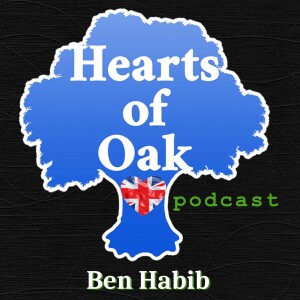


Thursday Feb 20, 2025
Thursday Feb 20, 2025
This episode of Hearts of Oak, we sit down with Ben Habib—businessman, former MEP, and outspoken political figure—to discuss his journey from finance to the frontlines of Brexit. He shares insights into the challenges of UK politics, his departure from the Brexit Party, and his vision for real political change through the Great British Political Action Committee. If you're interested in grassroots activism, political reform, and the fight for British sovereignty, this is an episode you won’t want to miss!"
Connect with Ben Habib:
𝕏 - PAC - https://x.com/GreatBritishPAC
𝕏 - https://x.com/BackBrexitBen
Website: Ben Habib – Mending Broken Britain
Connect with Hearts of Oak. . .𝕏 x.com/HeartsofOakUKWEBSITE heartsofoak.org/PODCASTS heartsofoak.podbean.com/SOCIAL MEDIA heartsofoak.org/connect/SHOP heartsofoak.org/shop/
*Special thanks to Bosch Fawstin for recording our intro/outro on this podcast.
Check out his art theboschfawstinstore.blogspot.com and follow him on 𝕏 x.com/TheBoschFawstin
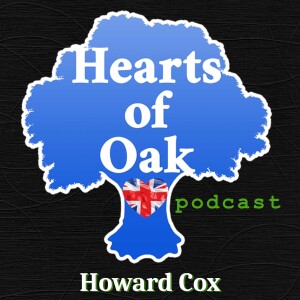


Monday Feb 17, 2025
Monday Feb 17, 2025
Join Howard Cox, founder of Fair Fuel UK, on "Hearts of Oak" as he discusses his fight against high fuel taxes and the challenges facing UK drivers. From his revelation on logistics costs to securing a fuel duty freeze, Cox shares the journey of his advocacy. He critiques current EV policies, representation in motoring, and the impact of London's ULEZ. Hear about his mayoral campaign with Reform UK and his ongoing commitment to motorists' rights.
Connect with Howard:
FairFuelUK https://fairfueluk.com/
𝕏 https://x.com/HowardCCox
Connect with Hearts of Oak. . .𝕏 x.com/HeartsofOakUKWEBSITE heartsofoak.org/PODCASTS heartsofoak.podbean.com/SOCIAL MEDIA heartsofoak.org/connect/SHOP heartsofoak.org/shop/
*Special thanks to Bosch Fawstin for recording our intro/outro on this podcast.
Check out his art theboschfawstinstore.blogspot.com and follow him on 𝕏 x.com/TheBoschFawstin
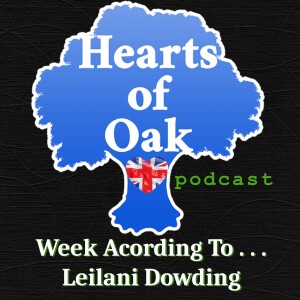


Monday Feb 17, 2025
Leilani Dowding: The Week According To. . .
Monday Feb 17, 2025
Monday Feb 17, 2025
Join Leilani Dowding on "Hearts of Oak" for a thought-provoking discussion on politics, public health, and societal changes. From RFK Jr.'s impact on U.S. health policy to the UK's political landscape, we cover it all with humor and insight. We'll delve into crime, immigration, and controversial medical treatments for children, questioning current norms and policies. Don't miss Leilani's take on Tommy Robinson's case and the absurdity of modern identity politics.
Follow Leilani on 𝕏 x.com/LeilaniDowding @LeilaniDowding
Connect with Hearts of Oak. . .𝕏 x.com/HeartsofOakUKWEBSITE heartsofoak.org/PODCASTS heartsofoak.podbean.com/SOCIAL MEDIA heartsofoak.org/connect/SHOP heartsofoak.org/shop/
*Special thanks to Bosch Fawstin for recording our intro/outro on this podcast.
Check out his art theboschfawstinstore.blogspot.com and follow him on 𝕏 x.com/TheBoschFawstin
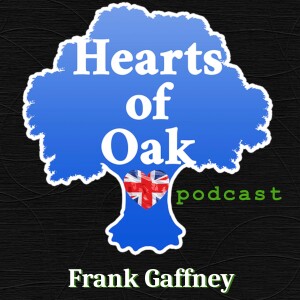


Monday Feb 10, 2025
Monday Feb 10, 2025
Frank Gaffney discusses his role in media and policy, advocating for collaboration to shape strategy. He introduces his new venture, the Institute for the American Future, aimed at enhancing policy discourse. Reflecting on Trump's policies toward Israel and Hamas, Gaffney calls for a broad strategy for peace in Gaza. He critiques U.S. foreign aid for potentially supporting adversaries and emphasizes strong leadership against threats from Sharia supremacism and the Chinese Communist Party. Lastly, he praises Trump's cabinet choices for their alignment with national challenges.
If you are not following Frank, you should be!Here's all the links you need...Securing America Website https://t.co/PWbSdhGwoD
Real America's Voice Real America's Voice (RAV) (@RealAmVoice) / X
Linktr.ee - https://t.co/IUufchKshv
Connect with Hearts of Oak. . .𝕏 x.com/HeartsofOakUKWEBSITE heartsofoak.org/PODCASTS heartsofoak.podbean.com/SOCIAL MEDIA heartsofoak.org/connect/SHOP heartsofoak.org/shop/
*Special thanks to Bosch Fawstin for recording our intro/outro on this podcast.
Check out his art theboschfawstinstore.blogspot.com and follow him on 𝕏 x.com/TheBoschFawstin



Saturday Feb 08, 2025
Karli Bonne' - The Week According To. . .
Saturday Feb 08, 2025
Saturday Feb 08, 2025
Explore the Democrat Party's "death spiral," from internal conflicts to messaging fails against Trump's policies. We'll discuss executive orders, corruption allegations, Trump's Israel policy, and TikTok's political impact. Laugh at social media reactions and get inspired for conservative unity. Tune in for analysis, humor, and hope.
If you are not following Karli, you should be!Here's all the links you need...TELEGRAM https://t.me/realKarliBonne (Midnight Rider Channel)TRUTH https://truthsocial.com/@KarliBonne
GETTR https://gettr.com/user/karlibonne
Connect with Hearts of Oak. . .𝕏 x.com/HeartsofOakUKWEBSITE heartsofoak.org/PODCASTS heartsofoak.podbean.com/SOCIAL MEDIA heartsofoak.org/connect/SHOP heartsofoak.org/shop/
*Special thanks to Bosch Fawstin for recording our intro/outro on this podcast.
Check out his art theboschfawstinstore.blogspot.com and follow him on 𝕏 x.com/TheBoschFawstin



Thursday Feb 06, 2025
Thursday Feb 06, 2025
Tommy Waller, president and CEO of the Center for Security Policy, discusses his military background and transition to the think tank arena, highlighting issues of U.S. energy security. He shares insights from his service in the Marines, the impact of faith in the military, and his departure from active duty driven by a spiritual calling. Waller critiques the Biden administration's energy policies, emphasizing vulnerabilities in America's energy infrastructure, particularly regarding electric grid security and the risks of cyberattacks. He advocates for enhancing energy resilience through small modular reactors and improving domestic manufacturing for critical components, while cautioning against reliance on adversarial nations for technology. The conversation connects national security and energy policy, underscoring the urgent need for comprehensive protection strategies and thoughtful planning for a secure energy future.
Connect with Tommy Waller. . .
𝕏 Lt. Col. Tommy Waller (USMC Ret.) (@LtColTommy) / X
Website: Center for Security Policy
Connect with Hearts of Oak. . .𝕏 x.com/HeartsofOakUKWEBSITE heartsofoak.org/PODCASTS heartsofoak.podbean.com/SOCIAL MEDIA heartsofoak.org/connect/SHOP heartsofoak.org/shop/
*Special thanks to Bosch Fawstin for recording our intro/outro on this podcast.
Check out his art theboschfawstinstore.blogspot.com and follow him on 𝕏 x.com/TheBoschFawstin

